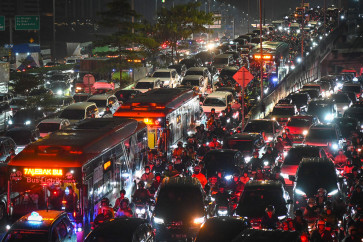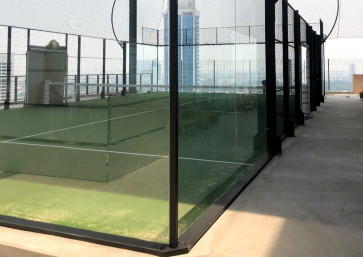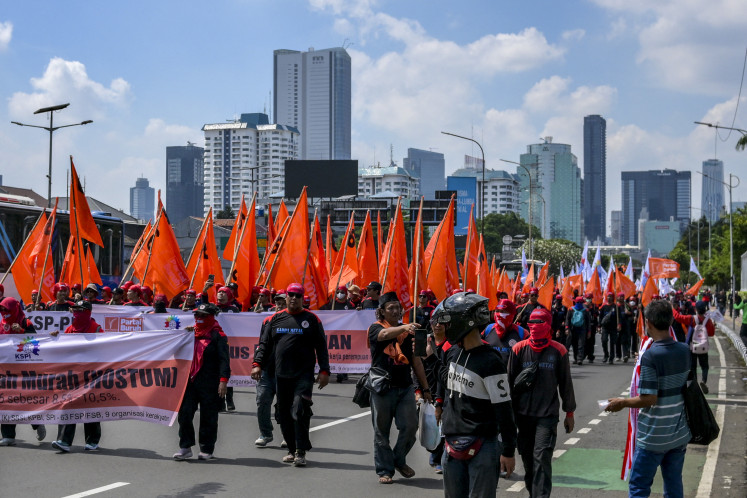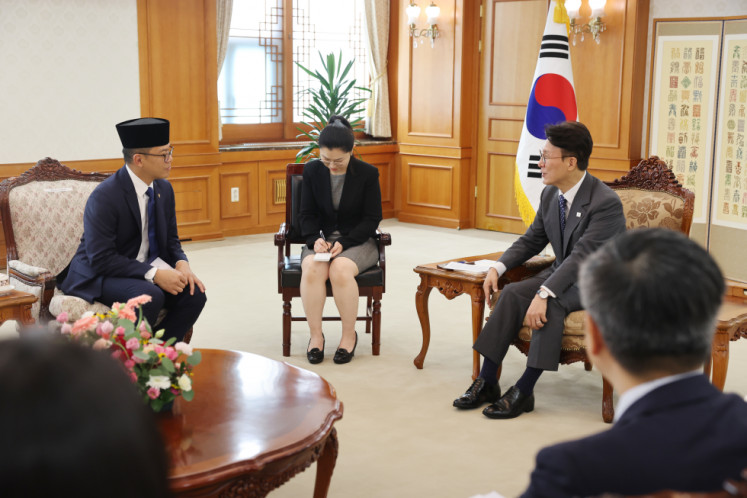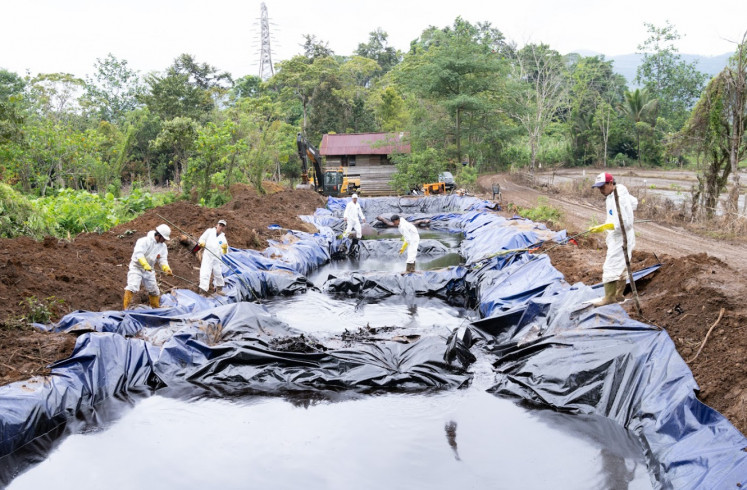Popular Reads
Top Results
Can't find what you're looking for?
View all search resultsPopular Reads
Top Results
Can't find what you're looking for?
View all search resultsRaids put intellectual freedom at risk
The government may discourage critical thinking among young people if it keeps on ambushing cultural events accused of harboring communist sympathies, activists have said
Change text size
Gift Premium Articles
to Anyone
T
he government may discourage critical thinking among young people if it keeps on ambushing cultural events accused of harboring communist sympathies, activists have said.
Upholding past ideological hostilities inherited from the Cold War, the government recently raided and banned the Belok Kiri (Turn Left) Festival from Taman Ismail Marzuki arts center, claiming that the organizers had not inform them of the event.
The Institute for Policy Research and Advocacy (ELSAM) recorded that at least 20 similar such incidents occurred in 2015.
Of the 20 cases, six involved forced dispersion and another six featured the arrest and intimidation of the event organizers.
Belok Kiri Festival organizing committee head Dolorosa Sinaga said that the event was aimed at educating the young generation of the history related to the 1965 genocide that saw thousands of people killed in a series of massacres ostensibly directed at the Indonesian Communist Party (PKI).
'Critical thinking is not a movement. It is a way of thinking. We need to encourage critical thinking in society to uphold justice and to respect differences. Time has proven again and again that critical thinkers are the people who correct history,' she added.
Remembered as one of the country's darkest periods, 1965 was a tumultuous year of slaughter after then army strategic reserve commander (Pangkostrad) chief Soeharto claimed that the PKI, which was at that time the main supporter of Sukarno, had murdered Army generals and had attempted to orchestrate a coup d'etat in the country.
Soeharto effectively took over the government in 1968 after years of political crisis.
Under his leadership, the PKI was blamed for the atrocities.
Soeharto's war on communism brought his administration closer to the anti-communist Western bloc led by the US.
While global politics has shifted ever since and Soeharto's New Order era is now in the past, the government still maintains the TAP MPRS XXVI/1966 ban on communism as a tool to discourage public discussion on leftist thinking.
Indonesian Legal Aid Foundation (YLBHI) chairman Alvon Kurnia Palma said that the People's Consultative Assembly (MPR) should consider reviewing the 1966 regulation.
'[The review] is to find out whether or not it is still relevant to the current state of affairs in Indonesia,' said Alvon.
The Belok Kiri Festival was transferred to the offices of the Jakarta Legal Aid Foundation. The festival is slated to run until March 5.
In December, the police also canceled a discussion and the reading of a drama script about the 1965 purge of communists after the Islam Defender's Front (FPI), a hard-line Islamic group, blocked the event, which they claimed 'harmed nationalism'.
Led by the Attorney General's Office (AGO), the government started to prepare a kind of reconciliation with the families and victims of the 1965 genocide.
The process, however, stumbled under pressure to take legal action against the perpetrators of the mass killings.
The complexity of those years has made it difficult for the government to effectively resolve the lingering tensions.


